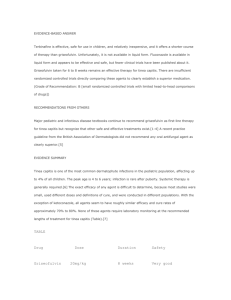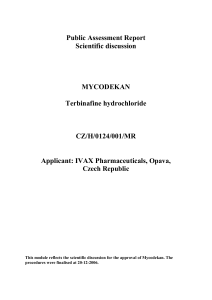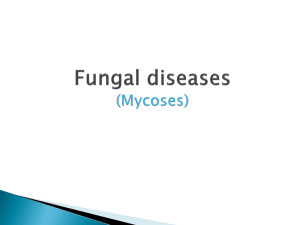FUNGAL INFECTION
advertisement
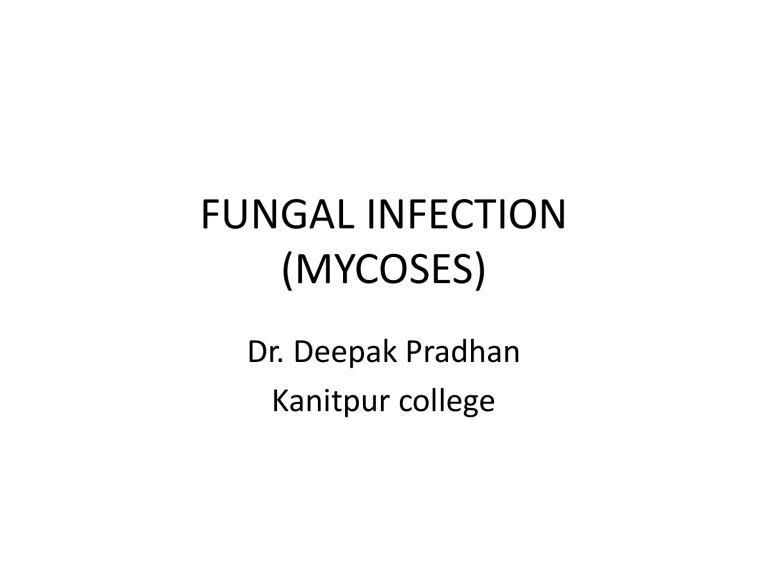
FUNGAL INFECTION (MYCOSES) Dr. Deepak Pradhan Kanitpur college Fungal infection(mycoses) Superficial mycoses:• Limited in the stratum corneum. • Fungi that cause superficial infection are called dermatophytes. • There are 3 genera a) Microsporum b) Trichophyton c) Epidermophyton • Infection caused by these fungi are called tinea or ringworm. Classification:Classification of superficial mycoses is based on the site of affection. Type Location & caused by Clinical manifestation Treatment Tinea capitis head. Caused by microsporum audouinii & trichophyton tonsuranus . Common in children . Oval,scaling,erythematous patches . Small papules on scalp . Brittle hair that break easily . Griseofulvin for 6 week . Shampoo hair 2 or 3 times with Nizoral or selenium sulfide shampoo Tinea corporis Body. Caused by trichophyton rubrum . Begins with red macule, which spread to ring papules or vesicles with central clearing . Lesion found in cluster . Many spread to the hair, scalp, nail . Very pruritic . An infected pet may be source . Mild condition: topical antifungal cream . Severe condition: griseofulvin or terbinafine Tinea cruris Groin area Caused by trichophyton rubrum . Begins with small red scaling patches which spread to form circular elevated plaques. . Very pruritic . Cluster of pustules may be seen around borders . Mild condition: topical antifungal cream . Severe condition: griseofulvin or terbinafine Tinea pedis Foot ; athlete’s foot Caused by trichophyton rubrum . Soles of one feet or both have scaling & mild redness with maceration in the toe webs . More acute infection may have cluster of clear vesicles on dusky base . Soak feet in vinegar and water solution . Resistant infection griseofulvin or terbinafine . Terbinafine(lamisil) daily for 3 months Tinea ungum Toenails; affect about 50% of adult Caused by trichophyton rubrum . Nails thicken, crumble easily, and lack luster . whole nail may be destroyed . Itraconazole (sporanox) in pulses of 1 week a month for 3 months in case of terbinafine failure. Diagnosis Wood’s light examination of the broken hair is highly diagnostic and yields green fluorescence.
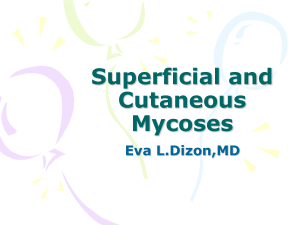
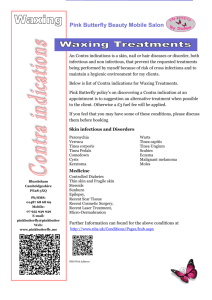
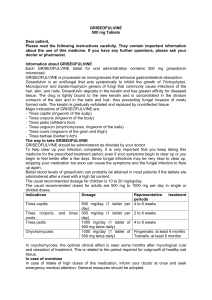
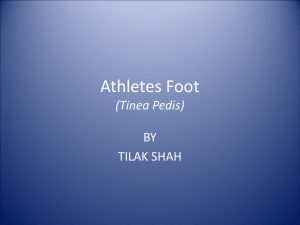
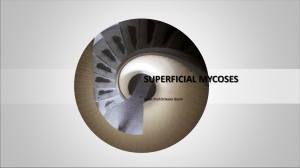
![Occupational Health - Zoonotic Disease Fact Sheets #15 DERMATOMYCOSES Foot)]](http://s2.studylib.net/store/data/013216770_1-db2cdf56a16f26d122fecafe6758caad-300x300.png)
